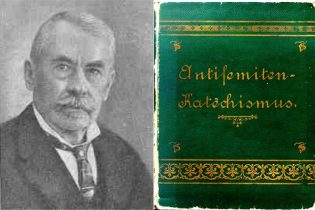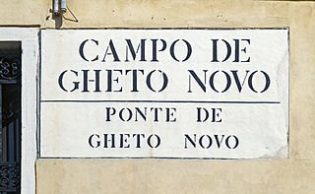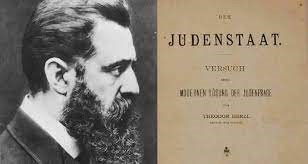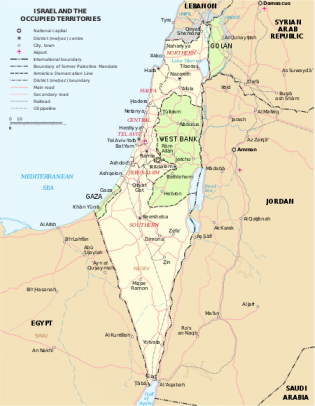The Birkbeck Institute for the Study of Antisemitism holds seminars, workshops and conferences for scholars, and lectures, discussions and film screenings that are open to everyone.

After years of focusing on policy and perpetrators, historians of the Holocaust have begun to give victims’ experience more attention. But we have been surprisingly slow to ask how victims viewed the perpetrators. Mark Roseman explores these questions.

Antisemitism has figured in British political debates in the last year as never before. In this lecture, David Feldman examines the changing meanings of antisemitism since the term was first coined. He reveals a new history of the Jews’ struggle for equality from the late-nineteenth century and explains why the politics of antisemitism today generate so much controversy.

Horkheimer and Adorno’s Dialectic of Enlightenment contains a critique of capitalist society as the extreme point in the development of a human civilization that expands our productive and intellectual potential while it also constrains our capacity to make use of them.

Zia-Ebrahimi builds on recent comparative research on antisemitism and Islamophobia to argue that the two display similar dynamics in representing their target population as a different and antagonistic race (a process referred to as ‘racialization’).

The Pears Institute explores, through two powerful documentaries, the ways individuals and generations deal with the discovery of uncomfortable family truths – the past actions of parents and grandparents; and the challenge of confronting them.

This lecture looks at the history of the Ghetto of Venice and discusses the present challenges and future prospects of an iconic Jewish heritage site that has just celebrated 500 years of continuous existence and embodies the predicament of a city threatened increasingly by a “tourist monoculture”.

This symposium brings together scholars in history, literary studies and sociology, from the US, Israel and Europe, to explore the idea of the ghetto as it developed from the early modern period to the present, and to consider the institutional, social, and cultural practices that have constituted (and constitute) ghettos in everyday life.

This conference explores the relationship between racism and antisemitism. The urgency of this task has been made evident by the emboldening of racist and nationalist movements across the globe. The conference sets out to explore the limits and possibilities of bringing together the studies of racism and antisemitism.

In the post-Holocaust era, moreover, Horkheimer and Adorno, expressed ongoing concern about the continuing existence of antisemitism. This talk will analyse the reasons for the marked differences in the School’s attitudes towards antisemitism in three distinct periods, and the significance of these differences.

This roundtable discussion brings together three leading expert who draw from their own work to illuminate both what is ‘Jewish’ about international history and the potential for international Jewish history to reshape the contours of the study of modern Europe.

Bergson’s legacy – his relentless determination to follow a moral imperative – will be the springboard for the discussion which follows the film, exploring historical choices, and the contemporary resonances in the ethical challenges posed by our response to rising antisemitism and xenophobia today.

From the perspective of a life lived across German and Jewish contexts, Frie explores what it means to discover the legacy of a Nazi past. Beginning with the narrative of his grandfather, he shows how the transfer of memory from one German generation to the next seeks to keep the Holocaust at bay.

This three day international conference brings together more than 35 scholars from institutions in eight countries, from different disciplines and with diverse perspectives, to examine the interaction between Zionism and antisemitism as it has developed from the nineteenth century through to the present day.

Derek Penslar examines the emotional components of Zionist diplomacy and compares their impact on Zionists and antisemites alike. Possessed of radically different personalities and operating under different geo-political circumstances, Theodor Herzl elevated antisemitism into an ideology, while Chaim Weizmann engaged with it as an emotion.

Bashir Bashir offers an initial conceptual framework that identifies and explores the enabling conditions for a joint Arab-Jewish deliberation on the memories of the Holocaust and the Nakba. The proposed framework paves the way for binational ethics and politics that are required for decolonization and historical reconciliation in Israel/Palestine.

Susan Suleiman will speak about her recent book, The Némirovsky Question (Yale University Press, 2017) that explores the fraught issue of Jewish identity in the life and work of Jewish Franco-Russian novelist Irène Némirovsky

This paper, drawing on a newly published book edited by James Renton and Ben Gidley, explores the changing ways the figures of the Jew and the Muslim have been used to mark the borders of European identity – an identity that remains normatively Christian despite a rhetorical drift to secularism, the “Judeo-Christian” or the multifaith.

The representation of the Holocaust and antisemitism in British film and television has been relatively overlooked. This illustrated workshop attempts to address this gap by screening and discussing a range of texts that examine memories of the Holocaust and antisemitism in Britain in a variety of forms.

By exploring the tumultuous events in Berdichev, Minsk and Moscow, three cities located in different regions of the Soviet territory, this talk will capture Jewish responses to the 1917 Revolution, and reassess the role that violence played in the choices Jews made.

The election of Donald Trump has seen a resurgence of the far-right and of wider racism, antisemitism and Islamophobia in the United States. This history will be examined not only in the context of the resurgence under Trump, but also in the context of debates about ‘post-racial’ America and about effective resistance and opposition to the far-right post-Charlottesville.

Cosmopolitanism is often seen as providing a perspective on the world that looks beyond immediate borders and nation states. Postcolonial theorists have explored how cosmopolitanism speaks to other minority experiences, both within Europe and beyond. This event brings together four leading scholars to explore what cosmopolitanism means today.

We build alliances to promote knowledge and share understanding, making our work ever-more relevant in a world threatened by populisms and conspiracy theories from the political left and right
Professor David Feldman, Director